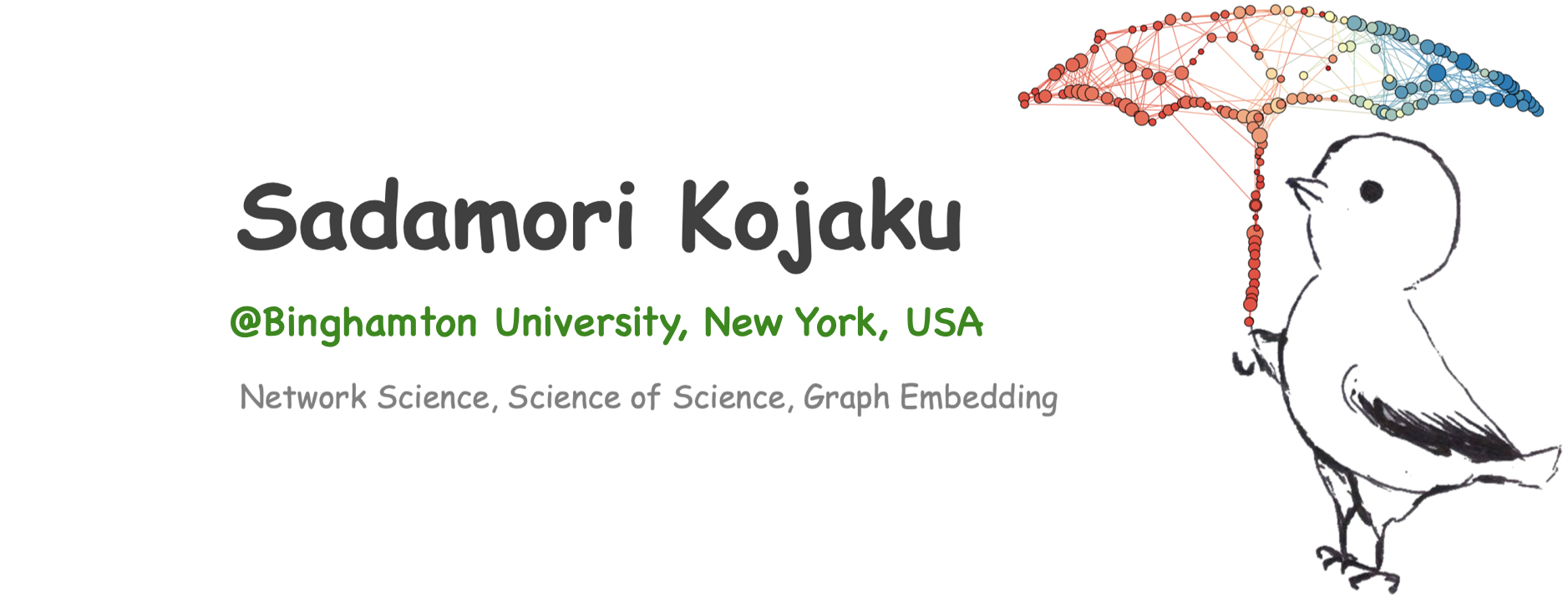
Hi 👋, I’m Sadamori Kojaku, Assistant Professor at Binghamton University, developing computational machines that learn simplicity in complexity. I’m also leading Contexture Lab, where we explore continuous social reality via representation learning and network science.